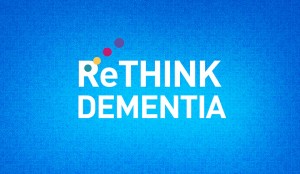There is Such a Thing as Being Too Thin…
Improved Nutrition outcomes are within reach for those living with Dementia and other chronic illnesses.
A popular saying says, “We are what we eat.” A good diet is vital to everyone’s health, well-being, and quality of life. A person needs carbohydrates, protein, fat, fiber, minerals, vitamins, electrolytes, and water to survive. Obtaining the correct balance and quantities of these nutrients is essential. Insufficient nutrition and hydration can lead to deterioration of overall health, including mental health, as well as weight loss, dehydration, dizziness, increased risk of falls, prolonged recovery after surgery, change of mood, frequent colds, reduced strength, reduced mobility, reduced communication abilities, difficulty keeping warm, infections, as well as prolonged healing. Cognitive deficits such as Dementia, have a direct effect on a person’s nutrition. Malnutrition or under nutrition may occur at any stage of dementia. It is important to detect it and try to remedy this as early as possible.
Did you know? Up to 45 per cent of people living with dementia experience clinically significant weight loss over one year, and up to half of people with moderate or severe dementia have an inadequate food and nutritional intake. Some experience very quick weight loss, dropping to a withering 70-90 lbs. in a span of several months. As dementia advances, it’s difficult to ensure that those living with dementia are eating and drinking enough. Eating difficulties are also very common in those living with Alzheimer’s Disease. These challenges increase the risk for malnutrition and can worsen other health conditions a person may already have. There are numerous reasons for poor appetite to develop, including depression, communication problems, sensory impairments, change in taste and smell, pain, tiredness, medication side effects, physical inactivity, and constipation. Some people with dementia may lose their ability to concentrate, so they become distracted while eating and stop eating as a result. Other people may have trouble using utensils or raising a glass. It may also be challenging to bring the food from the plate to their mouth. Some people may need to be reminded to open their mouths to put food in it or even to chew. Another common problem in more severe dementia cases is dysphagia, which is difficulty swallowing. Dysphagia can lead to weight loss, malnutrition, or dehydration. Over time you may find that your loved one’s appetite declines or the taste of food doesn’t appeal to them. Sensory changes in sight and smell can impact their ability to enjoy food and mealtimes. Their likes and dislikes for food and drink may be quite dramatic and different from the ones they held for many years. They may also find it difficult to tell you what they want to eat.
Dementia and Alzheimer’s Disease are not the chronic conditions that often cause malnutrition or under nutrition. Other chronic conditions often impact a person’s nutrition. Many illnesses cause what is called disease-related malnutrition. Many people living with Parkinson’s disease, suffer from muscle weakness or tremors, which can make eating very challenging. Other diseases that often cause nutrition deficiencies are cancer, liver disease, COPD, and CHF to name a few.
In many of these cases, the malnutrition and under nutrition are severe, and all conventional methods have failed. Orchard’s State of the Art Nutrition Therapy Program offers hope for this group, a group that has not responded to traditional nutrition methods. Orchard has partnered with Gordon Foods and their team of experts and dieticians, as well as with dementia specialists to bring this revolutionary nutrition therapy to the community.
Join us on February 27th 4 pm-6 pm as we unveil our Nutrition Therapy Program to area professionals who are interested in helping our community battle this difficult problem. This event will be held at; Orchard at Tucker, 2060 Idlewood Rd, Tucker GA 30084. For questions or to RSVP for the event please email marketing@orchardseniorliving.com.









